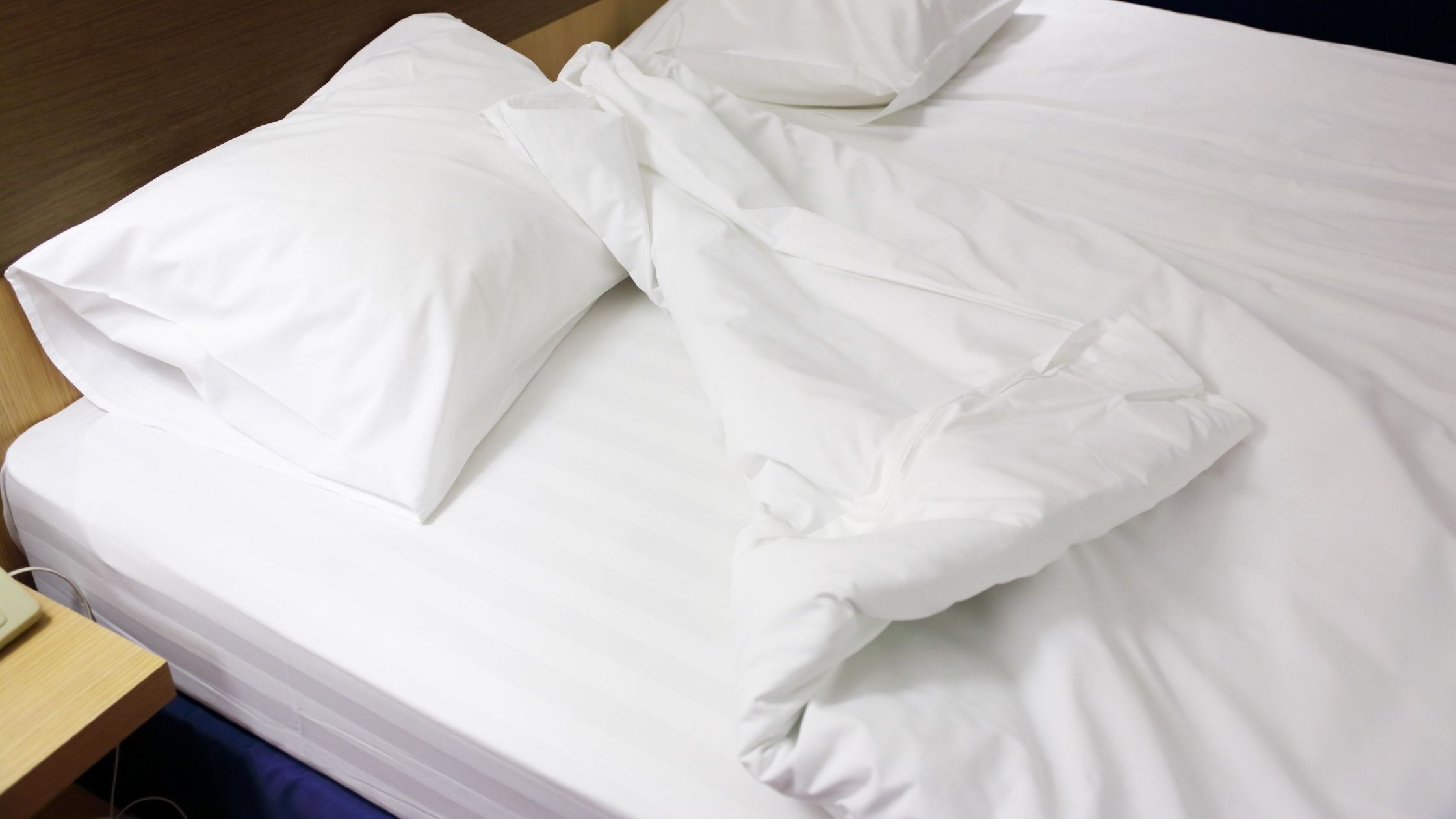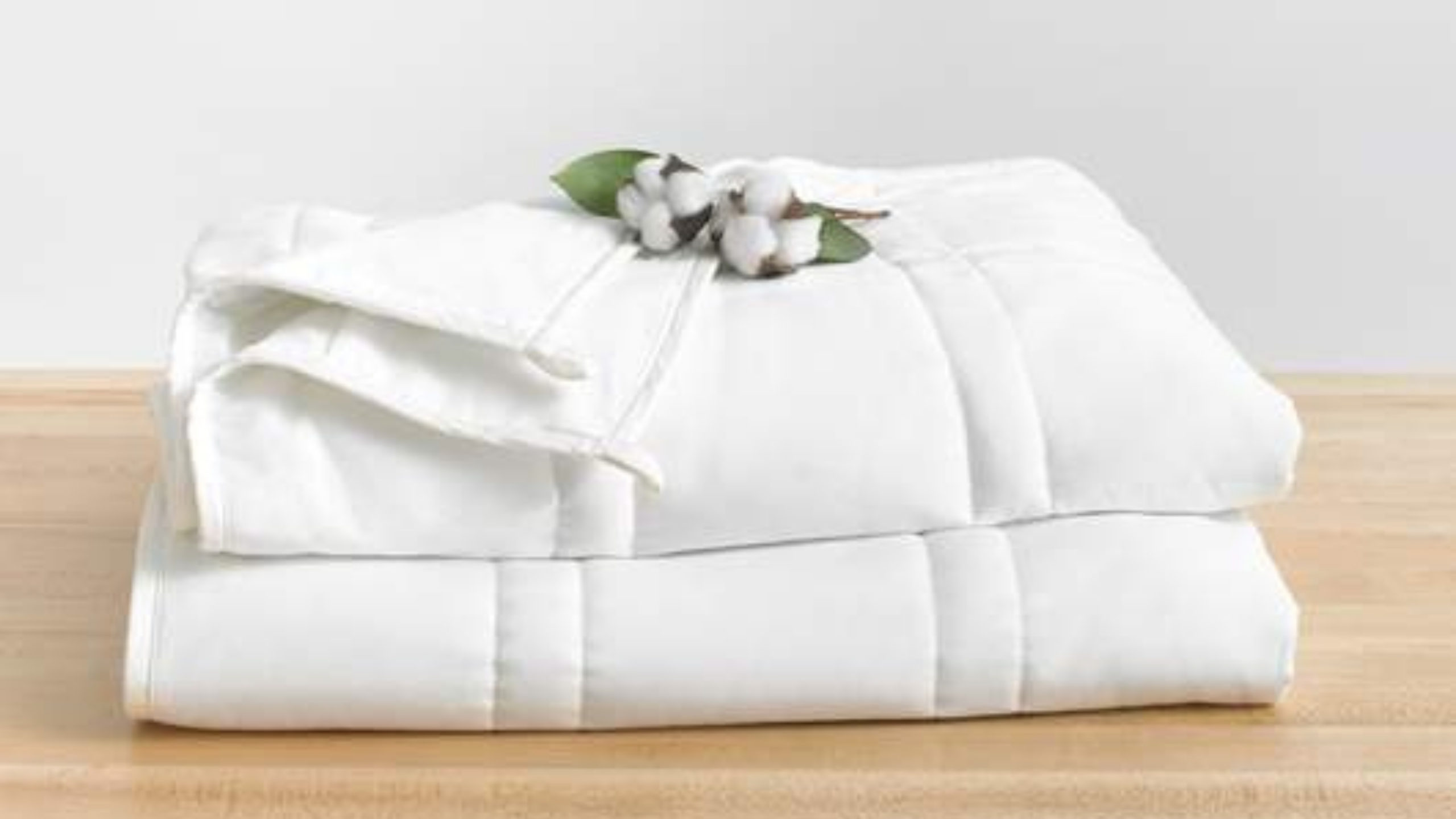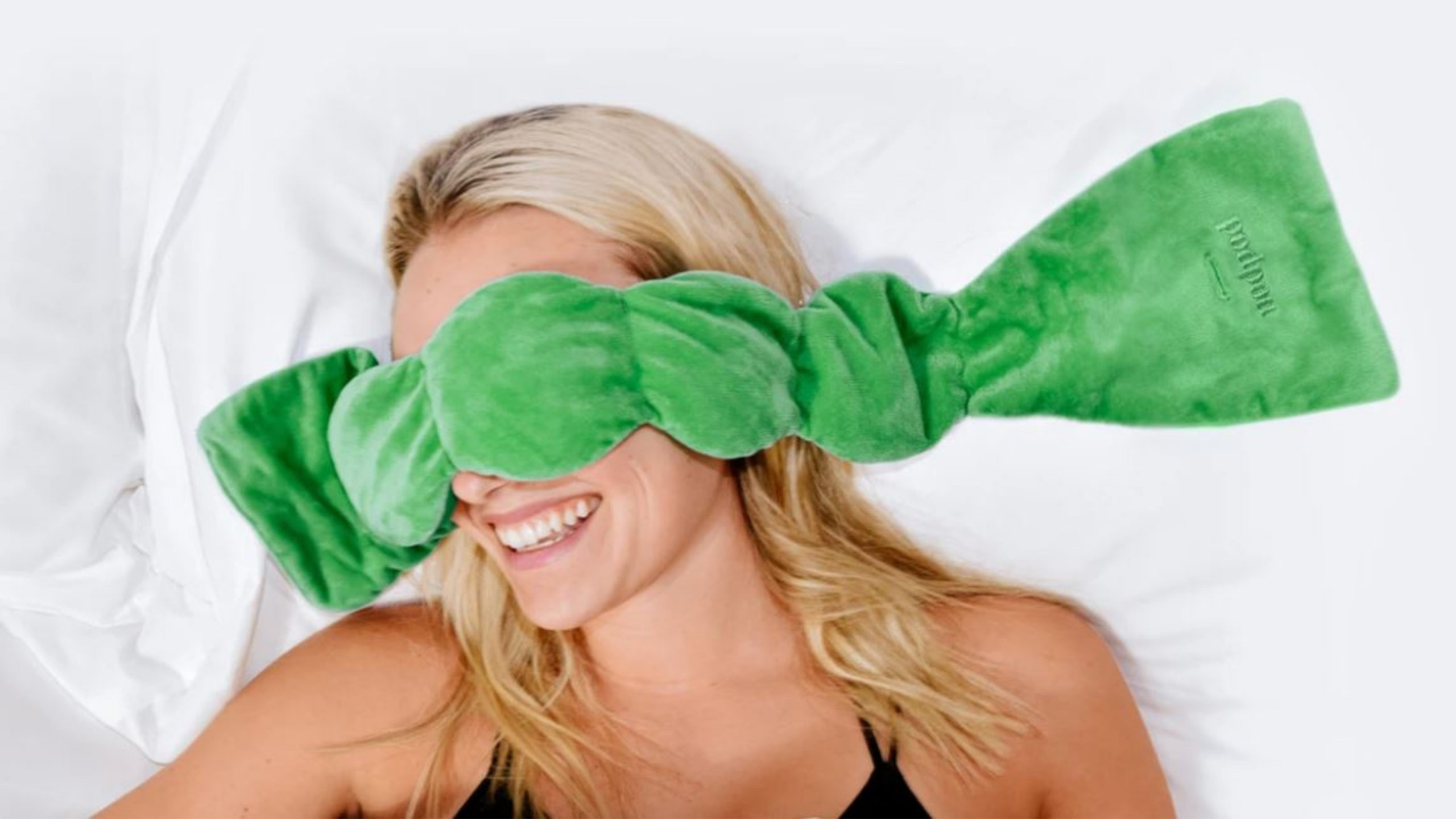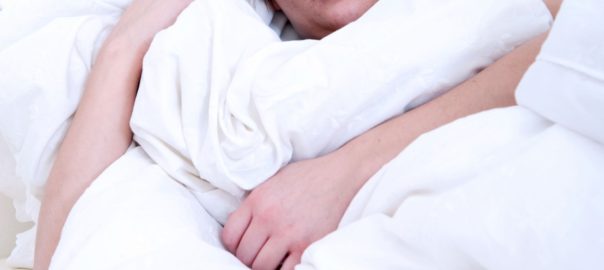Do you struggle with sleep issues? If you said yes you aren’t alone. The Center for Disease Control (CDC) states that 50 to 70 million Americans suffer from some type of sleep disorder. Insomnia is the most common type with approximately 30% of adults reporting short-term and 10% chronic sleep issues.
Unfortunately, there are a number of health concerns that go along with sleep disorders. Short- and long-term effects of inadequate sleep can lead to depression, burnout, addiction, and even cardiovascular health conditions. Lack of sleep can also have a negative effect on production, judgment, social and family situations, and may lead to an increase in accidents.
Why Do We Have Sleep Disturbances?

It may have to do with the stressors associated with our modern lifestyle. Oddly enough studies indicate that women tend to struggle even more. But the reality is most of us struggle at one time or another with some sort of sleep challenges. Fortunately, there are some supportive strategies that can improve your sleep quality. One of the most important things you can do is improve your sleep hygiene which refers to “habits that help you have a good night’s sleep.”
Improve Your Sleep
Taking sleeping pills is an option that many people try to avoid. It may be from concerns about becoming dependent on the medication. Or feeling like your sleep issues aren’t “bad enough” to warrant medication. It could also be that increasing numbers of people are looking for non-pharmaceutical solutions.
There are a number of supplements that can be helpful such as:
- L-theanine
- 5 HTP
- tryptophan
- melatonin
- magnesium
Herbal teas can also be supportive. These include chamomile, valerian, and linden. Some of my clients have shared that they have to switch up the supplements or herbs because their body begins to get used to these remedies and poor sleep quality returns.
Anxiety and Stress
Your mental or emotional state can also contribute to many sleep disorders. Preparing your mind and body for sleep can improve your sleep quality, especially when it comes to falling asleep.
Occasionally we get overwhelmed and overstimulated as we go through our daily lives. This can make it difficult to sleep well at the end of the day. High energy output combined with an inability to refocus the mind often leads to a state of wakeful-seeming. Even though we are tired, we cannot shift our focus and calm down enough to sleep or we do not sleep deeply enough for restorative purposes.
One way to help relax the body and the mind is to take a detox bath. This bath is very soothing for many people and the addition of calming essential oils helps to support the transition to restorative sleep.
To make a detox bath combine the following ingredients and add them to a hot, but not scalding, tub of water:
- 1 cup epsom salts
- 1 cup baking soda
- 3-5 drops of essential oil - choose either ylang ylang, cedar wood, or sandalwood
Soak for 20 minutes immediately before bedtime.
This bath can be repeated up to twice per week.
Caution: Do not use this bath if you have other health conditions that might be severely impacted by immersion in a hot bath.
Mindfulness for Sleep
Making sure that your bedroom is cool and dark is important. You also want to go to bed as close to the same time each night. And develop a routine for how you get ready for bed. These cues signal your brain that it’s time to get ready to unwind and prepare for sleep.
Other strategies for sleep are incorporating sound. This can be through using guided meditation, sleep stories, or listening to white noise.
Sleep Tools
I’ve recently found a couple of game-changers that have been amazing when it comes to helping me have better sleep – a weighted blanket and weighted eye pillow. These two sleep tools have made such a huge difference.
Why all the weight you ask? Well, it turns out there is scientific evidence that adding a little weight is helpful with sleep quality. Using a weighted blanket has demonstrated a calming and relaxing effect. This can decrease anxiety, some studies have found it may relieve pain and improve mood.
How Does a Weighted Blanket Help?
It is believed that the weighted blanket provides deep pressure stimulation (DPS) which provides sensory modulation. DPS has been shown to increase the release of dopamine and serotonin thus creating a calming effect. Both these neurotransmitters can affect sleep.
Weighted blankets have been shown to help those with autism, ADHD, mental health challenges, PSTD, and insomnia. They were also found to be helpful while patients underwent dental procedures. Studies show that weighted blankets improve feelings of safety, relaxation, and comfort. Many report that the “pressure therapy” produces a calm-inducing amount of pressure on your entire body, similar to the feeling of being hugged, swaddled, stroked, or held.
How is the Weight Added?
You might be wondering if heavier fabric is how weight is added, but a weighted blanket is different. Filled with polymer pellets or glass beads, these provide the weight and touch therapy. Polymer pellets are tiny plastic solids with a consistent shape. They are colorless and non-toxic. They are similar to what some children’s toys have in them.
The other option is glass beads. These are small glass pebbles that have smooth round surfaces. They are very fine and have been compared to touching sand on a beach. Who doesn’t like to walk on a sandy beach? The glass beads are typically non-toxic and eco-friendly. Just make sure they are lead free.
Using glass beads can make the blanket more smooth and less “bumpy” compared to the polymer pellets. The glass beads definitely would be more eco-friendly and not adding more plastic to our lives. However, it really is a personal choice as to which one is better when it comes to the feel of the blanket. This includes not only the beads but the fabrics.
How Much Weight Should I Use?
Weighted blankets are sold in different weights. Through studies it has been found that most people will do best with a blanket that is no more than 10% of their body weight. That means if you weight 150 pounds the heaviest blanket you would want to purchase would be 15 pounds. Again this would be a personal choice.
The pellets or beads are encased between two layers of fabric. There are many fabric options to choose from. The warmer options include minky fabric, fleece, chenille, silk, flannel, acrylic, and polyester. For cooler fabrics cotton, bamboo, linen, and microfiber are options. Each fabric will have pros and cons. If you are looking for more eco-friendly and sustainable fabrics, choosing cotton, linen, or bamboo will be best.
Baloo is an eco-friendly brand made with lead-free glass microbeads and materials certified to be free of harmful chemicals.
Purchasing a duvet cover for your weighted blanket should be considered since weighted blankets do require extra care when cleaning. Because they can be more expensive than an average blanket, taking proper care of them will extend their life and a duvet cover will protect your investment.
Is a Weighted Blanket Right for You?
It can benefit both your physical and mental health by soothing anxiety and providing a better night’s sleep. But there are some challenges with weighted blankets including getting the right weight for you, extra care with cleaning, and being more expensive.
If you are a “hot” sleeper you may get too hot. There are some people who should not use weighted blankets; if you snore or have sleep apnea, talk to your healthcare practitioner before investing in a weighted blanket. If you are considering a weighted blanket for your child, make sure your child can move the blanket without your help.
Similar to weighted blankets, weighted sleep masks use DPS, providing the same soothing effect – a comforting hug to your face. I’m absolutely in love with my weighted eye pillow and am amazed at what a difference it made for my sleep quality. Here is the weighted eye pillow I love from Nodpod:

A weighted blanket or eye mask may be helpful to improve your sleep hygiene and ultimately, your sleep quality.
[expand title="Sources"]
Chen, HY, Yang, H, Meng, LF, Chan. PYS, Yang, CY, and Chen, HF. Effect of deep pressure input on parasympathetic system in patients with wisdom tooth surgery. Journal of the Formosan Medical Association, Volume 115, Issue 10, 2016, Pages 853-859. https://www.sciencedirect.com/science/article/pii/S0929664616301735.
Mullen. B., BS, Champagne. T., MEd, OTR/L, Krishnamurty, Sl, PhD, Dickson, D., APRN, BC & Gao R., PhD (2008) Exploring the Safety and Therapeutic Effects of Deep Pressure Stimulation Using a Weighted Blanket, Occupational Therapy in Mental Health, 24:1, 65-89, DOI: 10.1300/J004v24n01_05. https://www.tandfonline.com/doi/abs/10.1300/J004v24n01_05?needAccess=true&journalCode=womh20
McCall WV. Paying attention to the sleeping surface and bedclothes. J Clin Sleep Med. 2020;16(9):1427–1428. https://jcsm.aasm.org/doi/full/10.5664/jcsm.8704
Love Stevens, M. and Roby, A. Weigh Down on Sleep Respiratory Care October 2019, 64 (Suppl 10) 3223902. http://rc.rcjournal.com/content/64/Suppl_10/3223902.short
Ackerley, R, Badre G., and Olausson, H. (25 May 2015) Positive Effects of a Weighted Blanket on Insomnia. Journal of Sleep Medicine & Disorders, SciMedCentral. https://www.jscimedcentral.com/SleepMedicine/sleepmedicine-2-1022.pdf
[/expand]


